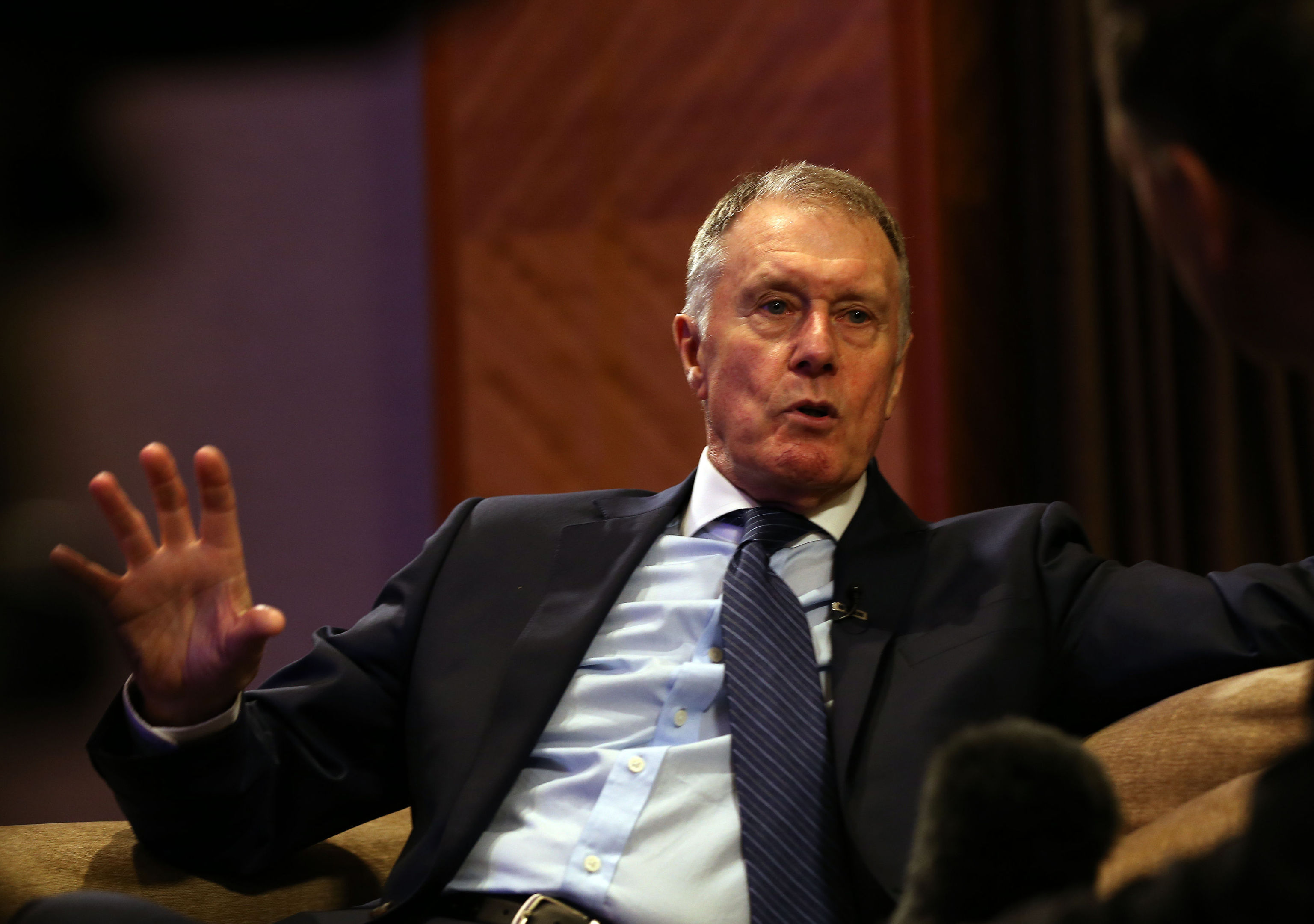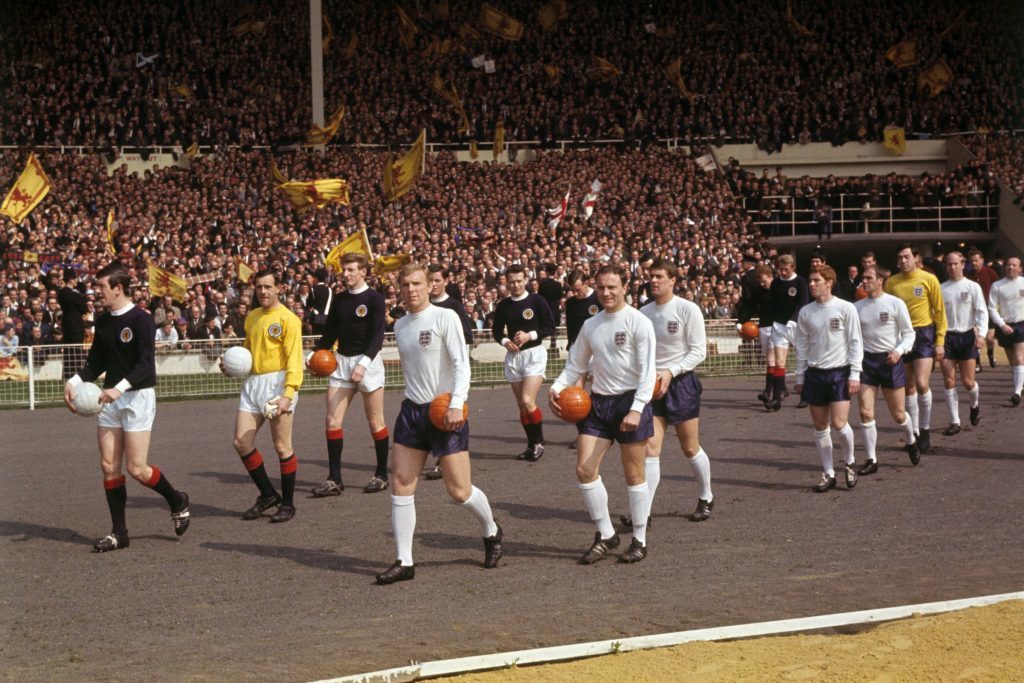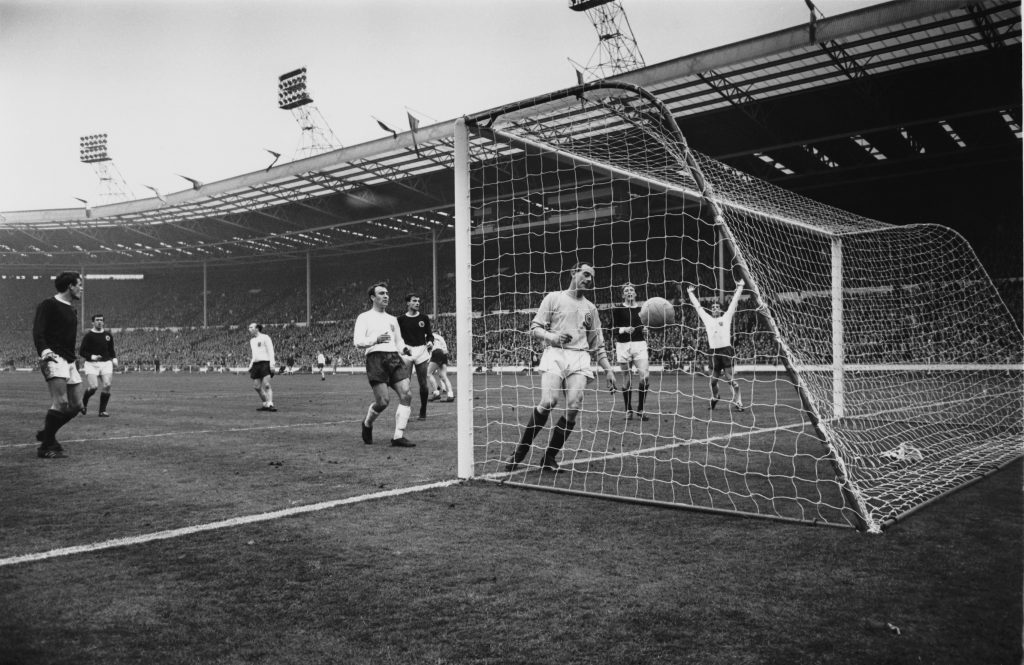
SIR GEOFF HURST needs little reminding of just what it meant for Scotland to beat world champions England at Wembley in April 1967.
Hurst sealed the greatest triumph in English football history with a hat-trick against West Germany in the 1966 World Cup final, which saw Sir Alf Ramsey’s side topple West Germany 4-2 after extra time.
Less than eight months later, however, the West Ham forward was back at Wembley for an occasion he did not enjoy quite as much.
Hurst was on the scoresheet against Scotland, looping in a header with a couple of minutes left to help give the scoreline some respectability, but the Tartan Army were in dreamland after a 3-2 win ended England’s 19-match unbeaten run in their own backyard.
“Every Scotsman I meet, the most asked question I get is, ‘Did I play in 1967?’. So, yes, I get reminded of it fairly regularly,” Hurst told Press Association Sport as he recalled a match which remains a memorable date for football fans north of the border some half a century on.
Denis Law and Bobby Lennox put the visitors two goals up before Leeds centre-back Jack Charlton, playing up front with a broken toe, halved the deficit six minutes from time.
Charlton’s goal may have given the hosts hope of a draw, but debutant Jim McCalliog swiftly restored Scotland’s two-goal cushion before Hurst’s late consolation.
The 75-year-old is happy to give the Scots their dues as England’s long undefeated run was finally ended by a side packed full of talent – including Law, Jim Baxter and Billy Bremner.
Four of the Celtic players in the team – goalkeeper Ronnie Simpson, full-back Tommy Gemmell, forward William Wallace and outside left Lennox – would soon go on to win the 1967 European Cup with a famous victory over Inter Milan in Lisbon.
“It was disappointing to get beaten by Scotland, of course, but the Scots were a good team, and we did have a couple of injuries,” Hurst said. “Jack Charlton had a broken toe and actually ended played up front.
“It was the only time Scotland beat an England team which I played in over the six years I played for England.
“But it was a good Scotland team then.
“At that time, Scottish football was fantastic. Every English team in those days had one or two great Scots playing for the top teams, so it was a great time for the game.”
While Scotland revelled in their victory, it was England who would be smiling come full-time on the bid to reach the 1968 European Championships.
England topped the combined British Home Championship group by a point following a 1-1 draw at Hampden Park in February 1968 to secure a quarter-final play-off against Spain.
Ramsey’s squad went on to reach the finals in Italy, finishing third on their debut in the UEFA tournament following a triumph over the Soviet Union.
Hurst was on target, along with Bobby Charlton, in a 2-0 win after he had missed the 1-0 semi-final defeat against Yugoslavia in Florence, where Alan Mullery became the first England player to be sent off.
While Hurst may never hear the end of Scotland’s Wembley success, he hopes a similar run of form from the latest group of England players could one day give future generations south of the border plenty more to talk about.
“Yes, of course there was disappointment that we got beat (by Scotland), but as we know in life, in football, you can’t win them all,” said Hurst, an ambassador for the 2017 McDonald’s Community Awards, which highlight the efforts of volunteers who make a real difference to their communities.
“Those 19 games (unbeaten) was pretty fantastic and we would like to go 19 games unbeaten now because that would incorporate (England) winning the World Cup.”
England v Scotland – The memorable matches at Wembley – click here to read more

Enjoy the convenience of having The Sunday Post delivered as a digital ePaper straight to your smartphone, tablet or computer.
Subscribe for only £5.49 a month and enjoy all the benefits of the printed paper as a digital replica.
Subscribe
